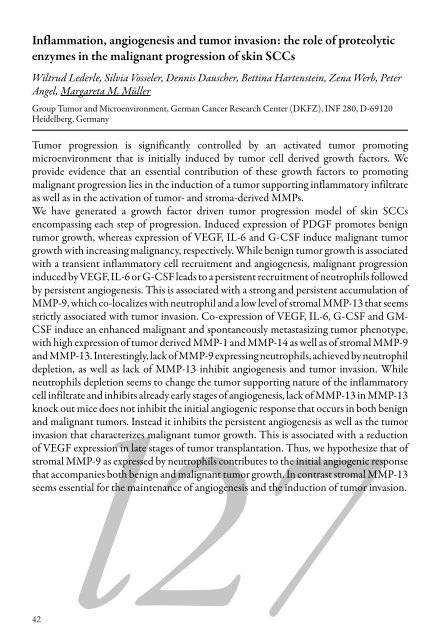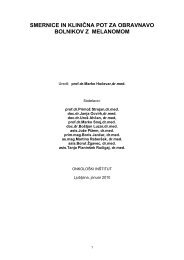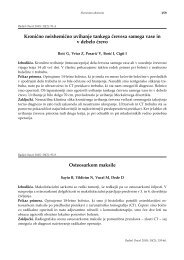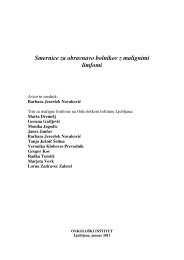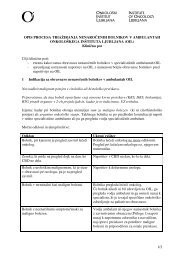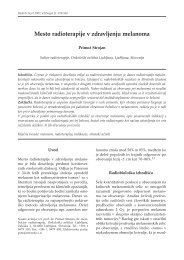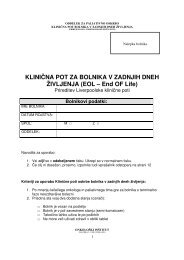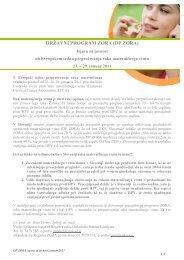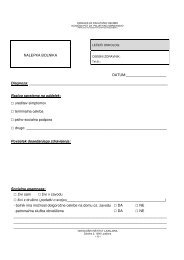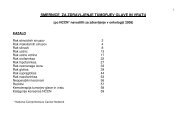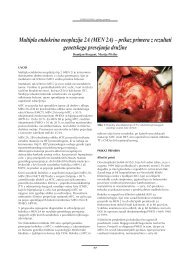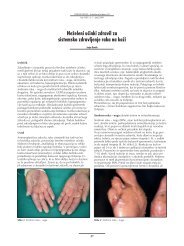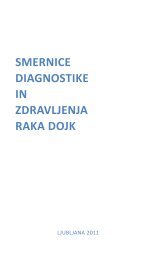You also want an ePaper? Increase the reach of your titles
YUMPU automatically turns print PDFs into web optimized ePapers that Google loves.
Inflammation, angiogenesis and tumor invasion: the role <strong>of</strong> proteolytic<br />
enzymes in the malignant progression <strong>of</strong> skin SCCs<br />
Wiltrud Lederle, Silvia Vosseler, Dennis Dauscher, Bettina Hartenstein, Zena Werb, Peter<br />
Angel, Margareta M. Müller<br />
Group Tumor and Microenvironment, German Cancer Research Center (DKFZ), INF 280, D-69120<br />
Heidelberg, Germany<br />
Tumor progression is significantly controlled by an activated tumor promoting<br />
microenvironment that is initially induced by tumor cell derived growth factors. We<br />
provide evidence that an essential contribution <strong>of</strong> these growth factors to promoting<br />
malignant progression lies in the induction <strong>of</strong> a tumor supporting inflammatory infiltrate<br />
as well as in the activation <strong>of</strong> tumor- and stroma-derived MMPs.<br />
We have generated a growth factor driven tumor progression model <strong>of</strong> skin SCCs<br />
encompassing each step <strong>of</strong> progression. Induced expression <strong>of</strong> PDGF promotes benign<br />
tumor growth, whereas expression <strong>of</strong> VEGF, IL-6 and G-CSF induce malignant tumor<br />
growth with increasing malignancy, respectively. While benign tumor growth is associated<br />
with a transient inflammatory cell recruitment and angiogenesis, malignant progression<br />
induced by VEGF, IL-6 or G-CSF leads to a persistent recruitment <strong>of</strong> neutrophils followed<br />
by persistent angiogenesis. This is associated with a strong and persistent accumulation <strong>of</strong><br />
MMP-9, which co-localizes with neutrophil and a low level <strong>of</strong> stromal MMP-13 that seems<br />
strictly associated with tumor invasion. Co-expression <strong>of</strong> VEGF, IL-6, G-CSF and GM-<br />
CSF induce an enhanced malignant and spontaneously metastasizing tumor phenotype,<br />
with high expression <strong>of</strong> tumor derived MMP-1 and MMP-14 as well as <strong>of</strong> stromal MMP-9<br />
and MMP-13. Interestingly, lack <strong>of</strong> MMP-9 expressing neutrophils, achieved by neutrophil<br />
depletion, as well as lack <strong>of</strong> MMP-13 inhibit angiogenesis and tumor invasion. While<br />
neutrophils depletion seems to change the tumor supporting nature <strong>of</strong> the inflammatory<br />
cell infiltrate and inhibits already early stages <strong>of</strong> angiogenesis, lack <strong>of</strong> MMP-13 in MMP-13<br />
knock out mice does not inhibit the initial angiogenic response that occurs in both benign<br />
and malignant<br />
l27<br />
tumors. Instead it inhibits the persistent angiogenesis as well as the tumor<br />
invasion that characterizes malignant tumor growth. This is associated with a reduction<br />
<strong>of</strong> VEGF expression in late stages <strong>of</strong> tumor transplantation. Thus, we hypothesize that <strong>of</strong><br />
stromal MMP-9 as expressed by neutrophils contributes to the initial angiogenic response<br />
that accompanies both benign and malignant tumor growth. In contrast stromal MMP-13<br />
seems essential for the maintenance <strong>of</strong> angiogenesis and the induction <strong>of</strong> tumor invasion.<br />
42


